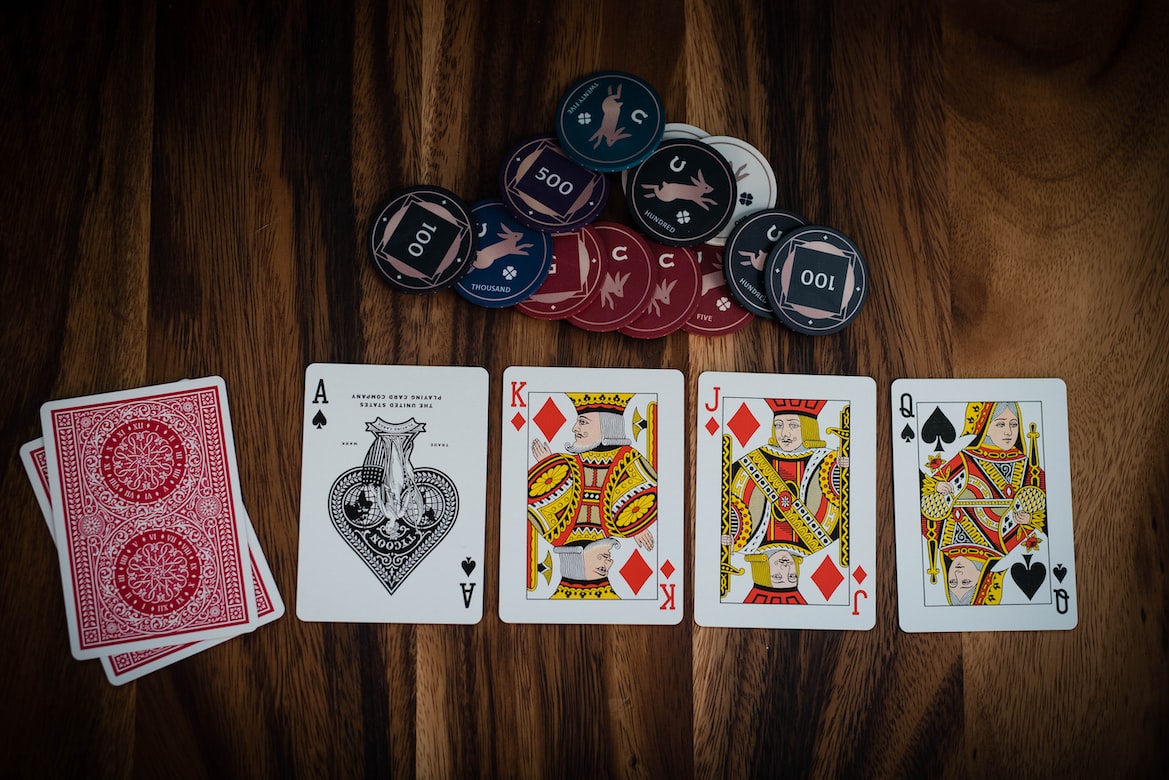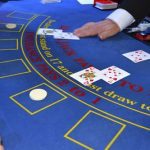
In this comprehensive guide, we’ll delve into the strategic intricacies of Omaha poker, equipping you with the essential tactics required to achieve unparalleled success at the table. From deciphering starting hands to navigating pot-limit dynamics, we’ll embark on a journey through the world of Omaha strategy, providing you with the insights needed to triumph with unwavering precision. Whether you’re an experienced poker player ready to conquer a new frontier or an inquisitive newcomer prepared to face the challenge, our guide will furnish you with the tools to confidently navigate Omaha’s unique complexities. Prepare to elevate your gameplay, outmaneuver opponents, and carve your legacy at the table through the mastery of precision-driven Omaha poker strategy. Let’s immerse ourselves in the art of strategic excellence and unleash unstoppable triumphs!
Mastering the Basics: Understanding the Rules of Omaha Poker Strategy
Omaha poker is a popular variant of Texas Hold’em that is played with four hole cards instead of two. This means that there are more possible combinations of hands, and the game requires a different strategy than traditional Texas Hold’em. In this article, we will discuss the essential Omaha poker strategy that every player should know.
The first step in mastering Omaha poker strategy is to understand the rules of the game. Each player is dealt four hole cards, and there are five community cards that are dealt face up on the table. The goal of the game is to make the best five-card hand using two of your hole cards and three of the community cards.
One of the most important things to keep in mind when playing Omaha poker is that you must use exactly two of your hole cards to make your hand. This means that you cannot use three or four of your hole cards, and you cannot use only one. This rule can be difficult to remember at first, but it is essential to playing the game correctly.
Another important aspect of Omaha poker strategy is starting hand selection. Because you have four hole cards instead of two, there are many more possible starting hands. However, not all starting hands are created equal. In general, you should look for starting hands that have the potential to make strong hands on the flop, turn, or river.
Some examples of strong starting hands in Omaha poker include pairs with high cards, such as A-A-K-K or Q-Q-J-J. You should also look for hands that have the potential to make a straight or a flush, such as 8-9-10-J or A-K-Q-10. However, you should avoid starting hands that are weak or have little potential, such as 2-3-4-5 or 7-8-9-10.
Once you have selected your starting hand, the next step in Omaha poker strategy is to play aggressively. Because there are more possible combinations of hands, it is important to build a pot early in the hand to give yourself the best chance of winning. This means that you should be willing to raise and re-raise if you have a strong hand.
However, you should also be cautious when playing Omaha poker. Because there are more possible combinations of hands, it is more likely that your opponents will have strong hands as well. This means that you should be willing to fold if you have a weak hand or if the board is showing strong possibilities for your opponents.
Another important aspect of Omaha poker strategy is reading your opponents. Because there are more possible combinations of hands, it can be difficult to know what your opponents are holding. However, you can use their betting patterns and the community cards to make educated guesses about their hands.
For example, if your opponent raises pre-flop and then bets strongly on the flop, it is likely that they have a strong hand. If the board is showing possibilities for a straight or a flush, you should be cautious and consider folding if you have a weak hand.
In conclusion, mastering Omaha poker strategy requires a solid understanding of the rules of the game, strong starting hand selection, aggressive play, caution, and the ability to read your opponents. By following these essential strategies, you can increase your chances of winning at Omaha poker and become a more skilled player.
The Importance of Position in Omaha Poker Strategy
Omaha poker is a popular variant of Texas Hold’em that is played with four hole cards instead of two. This means that there are more possible combinations of hands, and the game requires a different strategy. One of the most important aspects of Omaha poker strategy is position.
Position refers to where you are sitting at the table in relation to the dealer button. In Omaha poker, the dealer button moves clockwise around the table after each hand, so your position will change throughout the game. The two most important positions in Omaha poker are the button and the blinds.
The button is the best position to be in because you get to act last on every betting round after the flop. This means that you have more information about the other players’ hands and can make more informed decisions. You can also steal the blinds more easily from the button because the players in the blinds have to act first.
The blinds are the worst positions to be in because you have to act first on every betting round after the flop. This means that you have less information about the other players’ hands and are more likely to make mistakes. You also have to put money into the pot before you see your cards, which can be a disadvantage if you have a weak hand.
The other positions at the table are the early, middle, and late positions. The early positions are the players who have to act before the middle and late positions. The middle positions are the players who have to act after the early positions but before the late positions. The late positions are the players who have to act after the middle positions.
In Omaha poker, your position determines which hands you should play and how aggressively you should play them. If you are in the early positions, you should only play strong hands like high pairs, suited connectors, and high cards with good kickers. You should also be more cautious with your betting because you have less information about the other players’ hands.
If you are in the middle positions, you can play a wider range of hands, including medium pairs, suited aces, and high cards with weaker kickers. You should still be cautious with your betting, but you can also try to steal the blinds if the players in the early positions have folded.
If you are in the late positions, you can play a very wide range of hands, including low pairs, suited cards, and even weak high cards. You should be more aggressive with your betting because you have more information about the other players’ hands and can take advantage of their weaknesses.
Another important aspect of position in Omaha poker is the ability to control the size of the pot. If you are in the early positions, you should try to keep the pot small by betting less or checking. If you are in the late positions, you can try to build the pot by betting more or raising.
In conclusion, position is a crucial element of Omaha poker strategy. Your position at the table determines which hands you should play, how aggressively you should play them, and how much you should bet. By understanding the importance of position, you can improve your chances of winning at Omaha poker.
Reading Your Opponents: Tips for Analyzing Omaha Poker Strategy
Omaha poker is a popular variation of Texas Hold’em that requires a different set of skills and strategies. In Omaha, each player is dealt four hole cards instead of two, and they must use two of them to make their best hand. This means that there are more possible combinations of hands, and players need to be able to read their opponents to make the best decisions.
One of the most important skills in Omaha poker is the ability to read your opponents. This means paying attention to their betting patterns, body language, and other cues that can give you insight into their hand. Here are some tips for analyzing Omaha poker strategy and reading your opponents.
First, pay attention to the size of your opponents’ bets. In Omaha, players often bet more aggressively than in Texas Hold’em because there are more possible combinations of hands. If an opponent is betting big, it could mean that they have a strong hand. On the other hand, if they are betting small, it could mean that they are trying to lure you into a trap.
Second, watch your opponents’ body language. This can be a good indicator of whether they have a strong or weak hand. If they are fidgeting or looking nervous, it could mean that they are bluffing or have a weak hand. If they are calm and collected, it could mean that they have a strong hand.
Third, pay attention to the community cards. In Omaha, the community cards are dealt face up, which means that everyone can see them. If there are several high cards on the board, it could mean that your opponents have strong hands. If there are several low cards, it could mean that they have weak hands.
Fourth, consider your opponents’ playing style. Some players are more aggressive than others, while some are more conservative. If you are playing against an aggressive player, you may want to be more cautious and wait for a strong hand. If you are playing against a conservative player, you may want to be more aggressive and try to bluff them out of the pot.
Fifth, pay attention to the position of your opponents. In Omaha, the position is important because it determines who acts first and who has the advantage. If you are in early position, you may want to be more cautious and wait for a strong hand. If you are in late position, you may want to be more aggressive and try to steal the pot.
Finally, be aware of your own playing style. If you are a tight player who only plays strong hands, your opponents may be able to read you easily. If you are a loose player who plays a wide range of hands, your opponents may not be able to predict your moves as easily.
In conclusion, reading your opponents is an essential part of Omaha poker strategy. By paying attention to their betting patterns, body language, and other cues, you can gain insight into their hand and make better decisions. Remember to consider the size of their bets, their body language, the community cards, their playing style, and your own playing style. With practice and experience, you can become a skilled Omaha poker player who can read their opponents and win more pots.
Maximizing Your Hand: Advanced Omaha Poker Strategy Techniques
Omaha poker is a popular variant of Texas Hold’em that is played with four hole cards instead of two. This means that there are more possible combinations of hands, making it a more complex game. However, with the right strategy, you can maximize your hand and increase your chances of winning.
One of the most important things to remember in Omaha poker is that you need to have a strong hand to win. This means that you should be selective about the hands you play and only play those that have a good chance of winning. In addition, you should always be aware of the other players at the table and their tendencies, as this can help you make better decisions about when to bet and when to fold.
Another key strategy in Omaha poker is to pay attention to the board. Unlike in Texas Hold’em, where the community cards are dealt one at a time, in Omaha all four community cards are dealt at once. This means that you can see more of the board and get a better idea of what hands your opponents might have. You should always be looking for potential straights, flushes, and other strong hands on the board, as these can greatly affect the outcome of the game.
One advanced technique that can help you maximize your hand in Omaha poker is to use blockers. Blockers are cards that you hold in your hand that make it less likely that your opponents have certain hands. For example, if you have two aces in your hand, it is less likely that your opponents have aces in their hands. This can give you an advantage when it comes to betting and can help you win more pots.
Another advanced strategy in Omaha poker is to use position to your advantage. Position refers to where you are sitting at the table in relation to the dealer. If you are in a later position, you have more information about what your opponents are doing and can make better decisions about when to bet and when to fold. You should always be aware of your position and use it to your advantage whenever possible.
Finally, it is important to be flexible in your strategy when playing Omaha poker. This means that you should be willing to adjust your play based on the situation at the table. For example, if you are playing against aggressive players, you may need to be more conservative with your bets. On the other hand, if you are playing against passive players, you may be able to take more risks and make bigger bets.
In conclusion, maximizing your hand in Omaha poker requires a combination of skill, strategy, and flexibility. By being selective about the hands you play, paying attention to the board, using blockers, using position to your advantage, and being flexible in your strategy, you can increase your chances of winning and become a more successful Omaha poker player. So the next time you sit down at the table, remember these essential strategies and put them to use to maximize your hand and win big.
Staying Ahead of the Game: Adapting Your Omaha Poker Strategy to Different Formats
Omaha poker is a popular variant of Texas Hold’em that has gained a lot of popularity in recent years. It is a game that requires a lot of skill and strategy, and players who are able to adapt their strategies to different formats are more likely to be successful.
One of the most important things to keep in mind when playing Omaha poker is that you need to be patient. Unlike Texas Hold’em, where you can often win with a single strong hand, Omaha poker requires you to have a strong hand and a good understanding of the game. This means that you need to be willing to fold a lot of hands, especially in the early stages of the game.
Another important aspect of Omaha poker strategy is to be aware of the different formats of the game. There are several different formats of Omaha poker, including Pot Limit Omaha, No Limit Omaha, and Fixed Limit Omaha. Each of these formats requires a different strategy, and players who are able to adapt their strategies to the different formats are more likely to be successful.
In Pot Limit Omaha, for example, the maximum bet is equal to the size of the pot. This means that players can bet a lot of money, and the game can become very aggressive. In this format, it is important to be aggressive yourself, and to be willing to make big bets when you have a strong hand.
In No Limit Omaha, there is no maximum bet, and players can bet as much as they want. This format is even more aggressive than Pot Limit Omaha, and players who are able to make big bets and take risks are more likely to be successful.
In Fixed Limit Omaha, the bets are fixed, and players can only bet a certain amount on each round of betting. This format is less aggressive than the other two formats, and players who are able to play a more conservative game are more likely to be successful.
Another important aspect of Omaha poker strategy is to be aware of the different types of hands that are possible. In Omaha poker, players are dealt four cards instead of two, and they must use two of these cards to make their final hand. This means that there are many more possible hands in Omaha poker than in Texas Hold’em, and players who are able to recognize the different types of hands are more likely to be successful.
For example, a player who has a pair of aces and two other cards that are not aces is in a strong position, because they have a good chance of making a full house or a four of a kind. On the other hand, a player who has four cards of the same suit is in a weaker position, because they are less likely to make a flush.
In conclusion, Omaha poker is a game that requires a lot of skill and strategy, and players who are able to adapt their strategies to different formats are more likely to be successful. By being patient, aware of the different formats of the game, and aware of the different types of hands that are possible, players can stay ahead of the game and increase their chances of winning. So, if you want to be a successful Omaha poker player, be sure to keep these tips in mind and practice your skills regularly.
 Skip to content
Skip to content





